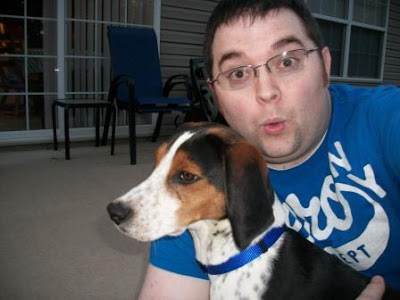The Daredevil's Advocate: A Review
There are superheroes, and there are superheroes.
The first kind are what will be flying and zooming and zipping around the movie screen in front of which I'll be sitting this weekend, smiling giddily whilst shoveling popcorn into my face: Iron Man and Thor and Hulk and Black Widow and Captain America and all those guys.
The second kind are what you saw with Christopher Nolan's Batman and Joker and Scarecrow and Bane, and now, Netflix's Daredevil.
Movies with the first kind of superheroes dazzle you with special effects; they wow you with incredible displays of super-heroic powers like arc-reactor-powered blasters and magic hammers and big green muscles; they captivate you with earth-shattering battles between mighty heroes and epic foes. Marvel has shown that it can do these kind of movies with not just crowd-pleasing, but critic-pleasing results. They're able to combine the big effects and huge-name actors with humanizing humor and endearing moments of emotion, so that they rake in not just massive piles of dollars, but accolades to match.
Movies with the second kind daze you with their grit; they rouse you with their humanness and emotion; they make you flinch with their visceral realness. Nolan set the bar incredibly high with his Dark Knight trilogy, which shed the cartoonish and kitschy style of the previous Batman movies for something bolder, dirtier, rougher, realer. His Batman and his villains were heroes and nightmares one could believe might actually exist somewhere in the world.
With "Daredevil," its Netflix-original debut, Marvel has shown that it can find the right people to bring the same level of superhero entertainment to the table that Nolan did. It has the same grit, the same roughness, the same level of gut-wrenching feeling that brings you into it in a way your mind could never accomplish with Mighty Thor or Incredible Hulk.
For the uninitiated, Matt Murdock, a.k.a. Daredevil, is a blind lawyer by day, helping those who can't help themselves with their legal problems. By night, Daredevil fights for those who can't help themselves against the darkness around them - he's blind, but his other senses are so enhanced as to allow him to be able to "see" his surroundings and fight/defend/move accordingly. The result is a ninja-quality fighter who battles by instinct, by sense, by feel.
Netflix's show is, like many initial superhero movies, a kind of origin story. It focuses, however, not on how he got/honed his powers, but how he begins and learns to use them to help his city against criminal forces much larger than he is. From episode one, Daredevil already kicks butt in a major way. He wins most of the time, but he also loses, and it's in his losing that the character begins to really develop. It helps to have someone who can embody the emotions involved in something like this, and Charlie Cox brings what Ben Affleck never could at that stage in his acting career.
With each loss, and with even some of his victories, he questions what he's doing, both in his approach and in his motivation. He feels what he's doing is right, but he knows he's on the edge of going too far, of becoming the kind of monster he's trying to fight. This conflict is voiced by his friends and characters he meets along the way, who are worried not only about his physical safety, but his emotional and even spiritual safety. One of my favorite lines, spoken by a priest in the show, pinpoints this inner conflict (paraphrase): "What worries you more: that you don't want to kill this man, but may have to? Or that you don't have to kill him, but want to?"
"This man" refers to the villain, Wilson Fisk, played to perfection by Vincent D'Onofrio. His "Kingpin" character, though never referred to by that name, is brutal and raw and emotional and vulnerable and scared and fearless and weak and powerful, all in one massive frame. Seriously, the guy deserves a blog on his own.*
I will warn you - it's gritty and rough and more violent than Marvel's movies. The punches and kicks feel real - the fear and anger do, too. I don't defend the amount of violence in the show, which would more than earn it a PG-13 rating for a movie. But - and this is to Marvel's credit - none of the violence, as hard as it is to watch, feels gratuitous, put in just to have another action sequence or to elicit cheers. There's a hesitance you can feel with every punch Daredevil throws, even as he faces those who most would deem worthy of a comeuppance most severe.
Daredevil has everything other recent Marvel entries had that made them instant hits: great story, perfectly-timed humor, powerful talent, and real emotion. I'm only now realizing that the TV miniseries format is perfect for comic book adaptations, which already have far more storylines than could ever hope to be realized on a screen. It may not be the vehicle for every Marvel character, but with the right characters and the right creative minds, it's one that can work.
It did with Daredevil, at least.
*I just had a thought about Fisk's character development and that of another famous villain. Look for something on this later.
The first kind are what will be flying and zooming and zipping around the movie screen in front of which I'll be sitting this weekend, smiling giddily whilst shoveling popcorn into my face: Iron Man and Thor and Hulk and Black Widow and Captain America and all those guys.
The second kind are what you saw with Christopher Nolan's Batman and Joker and Scarecrow and Bane, and now, Netflix's Daredevil.
 |
| "Watch my show. I... ...dare you." YEEAAAAAHHHH!!!! |
Movies with the first kind of superheroes dazzle you with special effects; they wow you with incredible displays of super-heroic powers like arc-reactor-powered blasters and magic hammers and big green muscles; they captivate you with earth-shattering battles between mighty heroes and epic foes. Marvel has shown that it can do these kind of movies with not just crowd-pleasing, but critic-pleasing results. They're able to combine the big effects and huge-name actors with humanizing humor and endearing moments of emotion, so that they rake in not just massive piles of dollars, but accolades to match.
Movies with the second kind daze you with their grit; they rouse you with their humanness and emotion; they make you flinch with their visceral realness. Nolan set the bar incredibly high with his Dark Knight trilogy, which shed the cartoonish and kitschy style of the previous Batman movies for something bolder, dirtier, rougher, realer. His Batman and his villains were heroes and nightmares one could believe might actually exist somewhere in the world.
 |
| "Mr. Murdock, based on your labs I can confirm that you look better without a shirt." |
With "Daredevil," its Netflix-original debut, Marvel has shown that it can find the right people to bring the same level of superhero entertainment to the table that Nolan did. It has the same grit, the same roughness, the same level of gut-wrenching feeling that brings you into it in a way your mind could never accomplish with Mighty Thor or Incredible Hulk.
For the uninitiated, Matt Murdock, a.k.a. Daredevil, is a blind lawyer by day, helping those who can't help themselves with their legal problems. By night, Daredevil fights for those who can't help themselves against the darkness around them - he's blind, but his other senses are so enhanced as to allow him to be able to "see" his surroundings and fight/defend/move accordingly. The result is a ninja-quality fighter who battles by instinct, by sense, by feel.
 |
| Daredevil prepares for his drum solo. On a bad guy's face. |
Netflix's show is, like many initial superhero movies, a kind of origin story. It focuses, however, not on how he got/honed his powers, but how he begins and learns to use them to help his city against criminal forces much larger than he is. From episode one, Daredevil already kicks butt in a major way. He wins most of the time, but he also loses, and it's in his losing that the character begins to really develop. It helps to have someone who can embody the emotions involved in something like this, and Charlie Cox brings what Ben Affleck never could at that stage in his acting career.
With each loss, and with even some of his victories, he questions what he's doing, both in his approach and in his motivation. He feels what he's doing is right, but he knows he's on the edge of going too far, of becoming the kind of monster he's trying to fight. This conflict is voiced by his friends and characters he meets along the way, who are worried not only about his physical safety, but his emotional and even spiritual safety. One of my favorite lines, spoken by a priest in the show, pinpoints this inner conflict (paraphrase): "What worries you more: that you don't want to kill this man, but may have to? Or that you don't have to kill him, but want to?"
 |
| The Matt/priest dialogues are some of the best moments in the show. |
I will warn you - it's gritty and rough and more violent than Marvel's movies. The punches and kicks feel real - the fear and anger do, too. I don't defend the amount of violence in the show, which would more than earn it a PG-13 rating for a movie. But - and this is to Marvel's credit - none of the violence, as hard as it is to watch, feels gratuitous, put in just to have another action sequence or to elicit cheers. There's a hesitance you can feel with every punch Daredevil throws, even as he faces those who most would deem worthy of a comeuppance most severe.
 |
| There are no words for how awesome a villain D'Onofrio's Fisk is. |
It did with Daredevil, at least.
*I just had a thought about Fisk's character development and that of another famous villain. Look for something on this later.


Comments